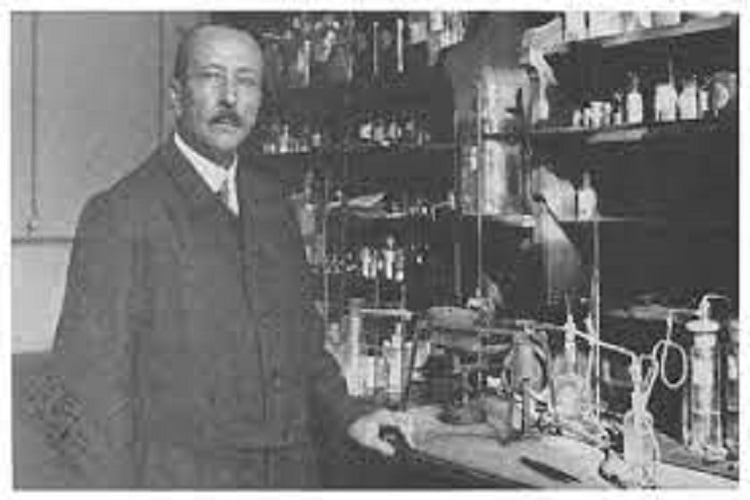Fritz Pregl: Pioneer of Microanalysis and Nobel Laureate

Fritz Pregl (3 September 1869 – 13 December 1930) was an Austrian chemist. In 1923, he was awarded the Nobel Prize in Chemistry.
Life and Career
Fritz Pregl was born on 3 September 1869, in Ljubljana, Slovenia. His early education likely included primary and secondary schooling in his hometown. After completing his secondary education, Pregl enrolled at the University of Graz, located in Austria. He pursued a degree in chemistry at this university.
In 1894, he earned his doctorate in chemistry from the University of Graz. His doctoral research likely marked the beginning of his work in analytical chemistry, which would become his lifelong passion. After completing his education. He worked as a university lecturer in Innsbruck and later returned to the University of Graz, where he held various teaching and research positions.
Pregl’s most significant contributions came in the area of analytical chemistry. He developed microanalysis techniques, which allowed for the precise and accurate determination of chemical substances in very small quantities. This work was groundbreaking and had far-reaching implications for various scientific fields.
Pregl’s microchemical method of organic analysis involved using tiny samples and specialized equipment to conduct highly accurate chemical analyses. This methodology revolutionized analytical chemistry and became invaluable in medicine, biology, and other scientific disciplines.
Throughout his career, Pregl continued to teach and conduct research at the University of Graz. His work not only expanded the horizons of analytical chemistry but also inspired and educated future generations of scientists. Fritz Pregl passed away on 13 December 1930, in Graz, Austria.
Award and Legacy
Fritz Pregl’s most significant recognition came in 1923 when he was awarded the Nobel Prize in Chemistry for his development of microanalysis techniques. His Nobel Prize citation specifically acknowledged his contributions to the “quantitative micro-analysis of organic substances.” Pregl’s legacy is primarily associated with his pioneering work in microanalysis. His techniques set new standards for precision and accuracy in chemical analysis, and they continue to be used by researchers and scientists worldwide.
Pregl’s dedication to advancing analytical chemistry and his innovative methodologies continue to inspire chemists and scientists today. His work has had a lasting influence on the way chemical analysis is conducted and has contributed to the advancement of scientific knowledge.
Observer Voice is the one stop site for National, International news, Sports, Editor’s Choice, Art/culture contents, Quotes and much more. We also cover historical contents. Historical contents includes World History, Indian History, and what happened today. The website also covers Entertainment across the India and World.

